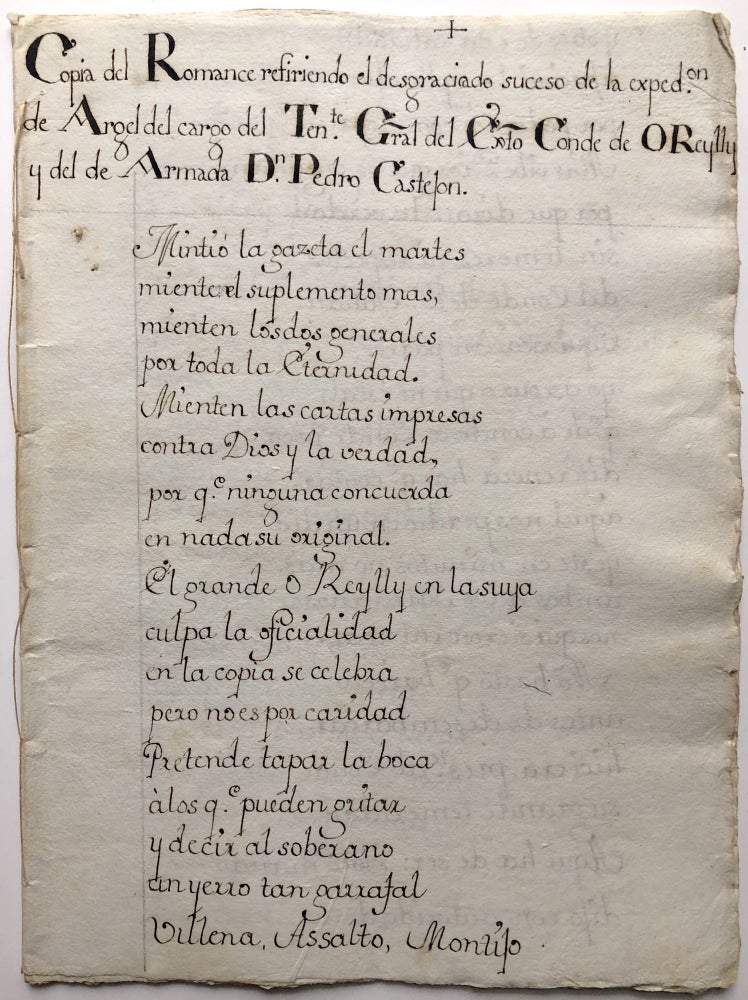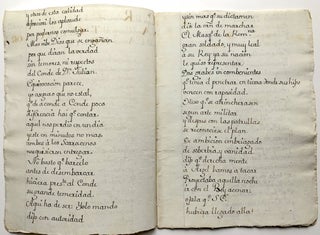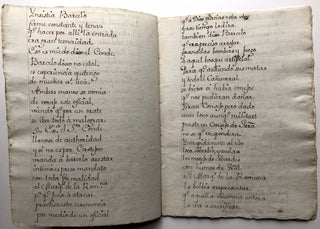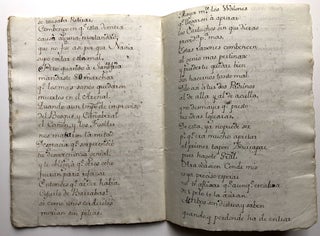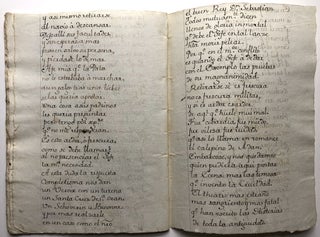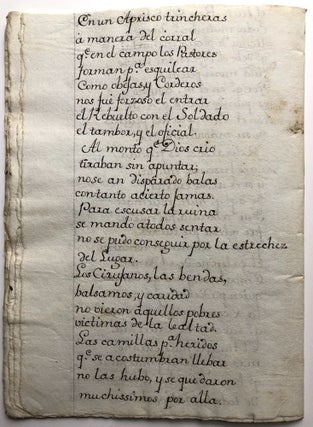Copia del Romance refieriendo el desgraciado suceso de la expedicion de Argel del cargo del Ten-te Gral del Cristo Conde de O'Reylly y del de Armada Don Pedro Castelon
Spain: Ca. 1790. Exceptional manuscript of a military poem, copied ca. 1790, 8.25 x 6.25 inches, 20 pp, sewn, very good, clearly written and assigning blame for the 1775 disastrous defeat at Algiers to the foolishness of the generals. The invasion was a combined Spanish and Tuscan effort. The amphibious assault was led by Spanish general Alexander O'Reilly and Tuscan admiral Sir John Acton, commanding a total of 20,000 men along with 74 warships of various sizes and 230 transport ships carrying the troops for the invasion. The defending Algerian forces were led by Baba Mohammed ben-Osman. The assault was ordered by the King of Spain, Charles III, who was attempting to demonstrate to the Barbary States the power of the revitalized Spanish military after the disastrous Spanish experience in the Seven Years' War. The assault was also meant to demonstrate that Spain would defend its Moroccan enclaves against any Ottoman encroachment, and reduce the influence that the Barbary states held in the Mediterranean. The poem begins, "The Gazette lied on Tuesday / the supplement lies. More, / The two Generals lie / for all eternity." We have noted other manuscript copies of this poem in collections, so a popular but perhaps unpublishable harsh critique of Spanish policies. Very Good. Item #H15479
Price: $350.00

